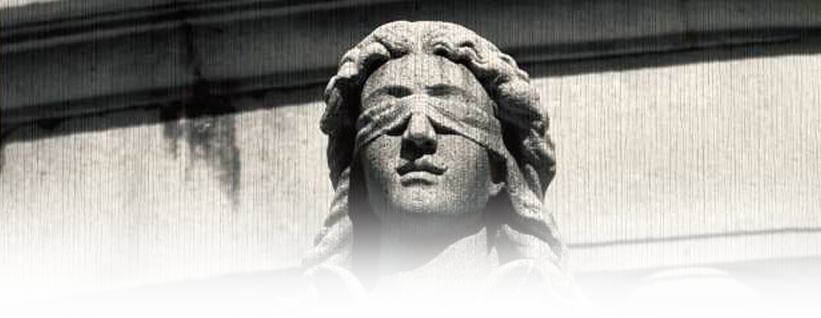





In its first three articles,the U. S. Constitution outlines the branches of the U. S. Government,the powers that they contain and the limitations to which they must adhere. Article II outlines the duties of the Executive Branch.
The President of the United States is elected to a four‐year term by electors from every state and the District of Columbia. The electors make up the Electoral College,which is comprised of 538 electors,equal to the number of Representatives and Senators that currently make up Congress. The citizens of each state vote for slates of electors who then vote for the president on the prescribed day,selected by Congress.
In order to become president,a person must be a natural born citizen of the United States. Naturalized citizens are ineligible,as are persons under the age of 35. In the case that the president should be unable to perform his duties,be it by death or illness,the vice‐president becomes the president. Amendment XXII placed a two‐term limit on the presidential office.
1. Commander‐in‐Chief—President has board powers to use troops in foreign countries(case dismissed as political question or president wins because president has board power as commander in chief in domestic affairs)
2. Foreign affairs—paramount power,but shared with Congress(non‐justiciable&inappropriate for judicial consideration);Congress has plenary power over foreign commerce
3. Treaties—agreements between the US&a foreign country that are negotiated by the President&are effective when ratified by the Senate
—State laws that conflict with treaties are invalid—Treaties prevail over conflicting state laws.
—If a treaty conflicts with a federal statute,the one adopted last in time controls.
—If a treaty conflicts with the United States Constitution,it is valid.
4. Executive agreements—an agreement between the US&a foreign country that is effective when signed by the President&the head of the foreign nation;NO Senate approval is required
—Executive agreements can be used for any purpose.
—Executive agreements prevail over conflicting state laws,but never over conflicting federal laws or the Constitution.

II. Domestic Affairs
1. Appointment&removal power
(1)Appointment Power:
(i)Officers—Senate must approve(e. g. ambassadors,fedjudges,officers of the US)
(ii)Inferior Officers—Congress may vest appointment in the President appointment
(a)Congress has some discretion in appointing inferior officers,and may vest the appointment of independent counsel in the lower federal courts
(b)Congress may not give itself or its officers the appointment power(that power is executive)(i. e. Congress cannot create a new executive agency where Congress appoints some of the members)
(2)Removal Power—unless removal is limited by statute,President may fire any executive branch official
(i)For Congress to limit removal power,it must be an office where independence from the President is desirable(i. e. it can limit removal of independent counsel,but not cabinet members)
(ii)Congress cannot prohibit removal,but can limit removal to good cause—this applies even to officers who should be independent from the President
2. Impeachment&removal:(i)the President,(ii)Vice President,(iii) fedjudges,(iv)officers of the US can be impeached&removed from office for treason,bribery or for high crimes&misdemeanors
(1)Impeachment doesn't remove a person from office—it just means that there will be a trial in the Senate
(2)Impeachment by the House requires a majority vote,while conviction in Senate requires 2/3 vote
3. Executive Immunity—absolute immunity to civil suits for money damages while in office—BUT,President does not have immunity for actions that occurred prior to taking office
4. Executive privilege—applies to presidential papers&conversations,but such privilege must yield to other government interests(not absolute)i. e. need for evidence in a criminal trial(Watergate)
5. Power to pardon—BUT not for impeachment
(1)President may pardon only for fed crimes,NOT state crimes
(2)President may pardon only for criminal liability,NOT civil liability
Facts of the Case
A grand jury returned indictments against seven of President Richard Nixon's closest aides in the Watergate affair. The special prosecutor was appointed by Nixon and the defendants sought audio tapes of conversations recorded by Nixon in the Oval Office. Nixon asserted that he was immune from the subpoena claiming“executive privilege,”which is the right to withhold information from other government branches to preserve confidential communications within the executive branch or to secure the national interest. Decided together with Nixon v. United States .
Question
Is the President's right to safeguard certain information,using his“executive privilege”confidentiality power,entirely immune from judicial review?
Legal Provision :US Const. Art. II
Conclusion
No. The Court held that neither the doctrine of separation of powers,nor the generalized need for confidentiality of high‐level communications,without more,can sustain an absolute,unqualified,presidential privilege. The Court granted that there was a limited executive privilege in areas of military or diplomatic affairs,but gave preference to“the fundamental demands of due process of law in the fair administration ofjustice. ”Therefore,the president must obey the subpoena and produce the tapes and documents. Nixon resigned shortly after the release of the tapes.